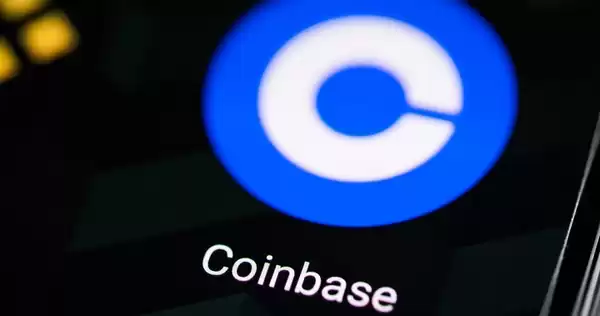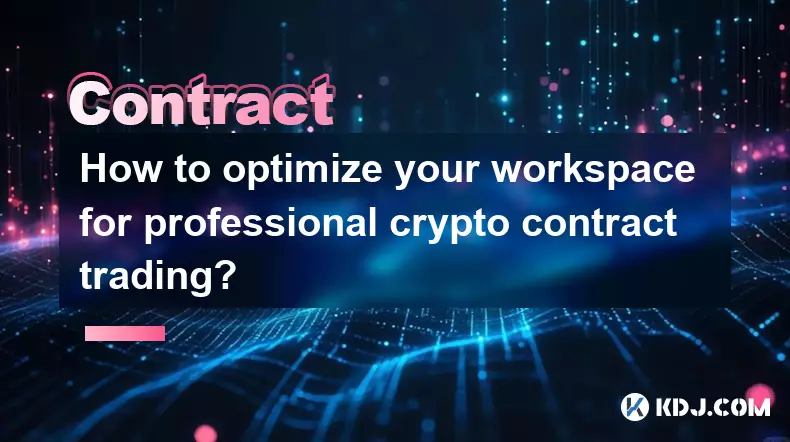-
 bitcoin
bitcoin $87959.907984 USD
1.34% -
 ethereum
ethereum $2920.497338 USD
3.04% -
 tether
tether $0.999775 USD
0.00% -
 xrp
xrp $2.237324 USD
8.12% -
 bnb
bnb $860.243768 USD
0.90% -
 solana
solana $138.089498 USD
5.43% -
 usd-coin
usd-coin $0.999807 USD
0.01% -
 tron
tron $0.272801 USD
-1.53% -
 dogecoin
dogecoin $0.150904 USD
2.96% -
 cardano
cardano $0.421635 USD
1.97% -
 hyperliquid
hyperliquid $32.152445 USD
2.23% -
 bitcoin-cash
bitcoin-cash $533.301069 USD
-1.94% -
 chainlink
chainlink $12.953417 USD
2.68% -
 unus-sed-leo
unus-sed-leo $9.535951 USD
0.73% -
 zcash
zcash $521.483386 USD
-2.87%
How much is the Coinbase contract fee
Coinbase's contract fees vary dynamically based on the gas consumed, network congestion, and priority fee adjustments, ensuring fair and efficient transaction processing on the Ethereum blockchain.
Nov 12, 2024 at 01:15 am

Coinbase Contract Fees: A Comprehensive Guide
1. Understanding Coinbase Contract FeesContract fees on Coinbase represent the transaction charges levied by the platform for executing smart contract interactions on the Ethereum blockchain. Unlike simple token transfers, smart contract executions involve more complex computations and require additional gas to facilitate the process. Coinbase acts as an intermediary between users and the Ethereum network, facilitating these transactions and charging a fee for its services.
The fee structure for Coinbase contract fees follows a tiered system based on the gas consumed during contract execution. The transaction fee comprises a base fee and a priority fee, with the latter varying dynamically based on network congestion. Users can adjust the priority fee to expedite transaction processing at the cost of a higher fee.
2. Factors Influencing Coinbase Contract FeesMultiple factors influence the amount of Coinbase contract fees incurred:
- Gas Consumption: The fee is directly proportional to the gas consumed during contract execution. Complex contracts with numerous computations and data operations require more gas, leading to higher fees.
- Network Congestion: When the Ethereum network experiences high traffic, the demand for block space increases, resulting in higher priority fees to secure timely transaction processing.
- Priority Fee: Users can manually adjust the priority fee to prioritize their transactions. A higher priority fee increases the likelihood of faster processing at the expense of a greater fee.
- Contract Complexity: Contracts with intricate logic, multiple functions, and data manipulation incur higher gas consumption and, consequently, higher fees.
To estimate the Coinbase contract fee for a given transaction, follow these steps:
- Determine Gas Consumption: Estimate the gas required by the smart contract using a gas estimator tool such as https://ethgasstation.info/. Consider the contract's complexity, functions called, and data processed.
- Check Network Congestion: Monitor the current network congestion using a gas tracker such as https://etherscan.io/gastracker. High congestion implies higher priority fees.
- Adjust Priority Fee: Set an appropriate priority fee based on the desired transaction processing time. Higher priority fees expedite processing.
- Calculate Base Fee: Refer to the current base fee provided by https://etherscan.io/gastracker. The base fee is a fixed amount not influenced by the user.
- Estimate Fee: Multiply the estimated gas consumption by the sum of the base fee and priority fee to determine the approximate Coinbase contract fee.
Several strategies can be employed to mitigate Coinbase contract fees:
- Optimize Contract Code: Design contracts efficiently to minimize gas consumption by reducing unnecessary loops, minimizing data manipulation, and optimizing function calls.
- Monitor Network Congestion: Schedule contract executions during off-peak hours when network congestion is lower, leading to reduced priority fees.
- Consider Alternative Chains: Explore alternative blockchain platforms with lower gas fees for smart contract executions, such as Polygon or Binance Smart Chain.
- Use Gas Optimization Tools: Utilize tools like https://gastoken.io/ to identify areas within the contract that contribute to high gas consumption and optimize accordingly.
- Batch Transactions: Group multiple contract executions into a single transaction whenever possible, reducing the overall fee compared to individual transactions.
Coinbase maintains a transparent fee structure for contract fees, ensuring that users are fully informed about the charges incurred before executing transactions. The platform clearly displays the base fee, priority fee, and estimated total fee for each transaction, allowing users to make informed decisions.
6. Alternative PlatformsFor users seeking lower contract fees, alternative platforms like MetaMask or Gnosis Safe offer direct interaction with the Ethereum network, potentially reducing the overall fees by eliminating the Coinbase intermediary. However, these platforms require a greater level of technical expertise and may not be suitable for all users.
7. Ongoing DevelopmentCoinbase actively explores ways to optimize contract fee mechanisms and reduce the cost for users. The platform continuously monitors advancements in smart contract execution and gas optimization techniques to enhance efficiency and lower fees.
Disclaimer:info@kdj.com
The information provided is not trading advice. kdj.com does not assume any responsibility for any investments made based on the information provided in this article. Cryptocurrencies are highly volatile and it is highly recommended that you invest with caution after thorough research!
If you believe that the content used on this website infringes your copyright, please contact us immediately (info@kdj.com) and we will delete it promptly.
- Ethereum Poised for Rally as Longs Consolidate Amidst Market Volatility
- 2026-02-02 16:00:02
- ETH Transfer Sparks Panic Selling, Wipes Out Trader in Major Crypto Shake-Up
- 2026-02-02 15:40:01
- Ethereum's High-Stakes Dance: Bull Trap or Supercycle Launchpad?
- 2026-02-02 16:05:01
- Bitcoin’s Wild Ride: Crypto Market Faces Price Drop Amidst Extreme Fear and Macro Headwinds
- 2026-02-02 12:30:01
- Bitcoin Price: Jim Cramer's $82K Recovery Forecast Ignites Market, Pitting Saylor Speculation Against the 'Inverse Cramer' Effect
- 2026-02-02 15:55:01
- Ross Stores Dominates Off-Price Retail with Brick-and-Mortar Prowess Amidst Economic Shifts
- 2026-02-02 13:20:01
Related knowledge

How to close a crypto contract position manually or automatically?
Feb 01,2026 at 11:19pm
Manual Position Closure Process1. Log into the trading platform where the contract is active and navigate to the 'Positions' or 'Open Orders' tab. 2. ...

How to understand the impact of Bitcoin ETFs on crypto contracts?
Feb 01,2026 at 04:19pm
Bitcoin ETFs and Market Liquidity1. Bitcoin ETFs introduce institutional capital directly into the spot market, increasing order book depth and reduci...

How to trade DeFi contracts during the current liquidity surge?
Feb 01,2026 at 07:00am
Understanding Liquidity Dynamics in DeFi Protocols1. Liquidity surges in DeFi are often triggered by coordinated capital inflows from yield farming in...

How to use social trading to copy crypto contract experts?
Feb 02,2026 at 07:40am
Understanding Social Trading Platforms1. Social trading platforms integrate real-time market data with user interaction features, enabling traders to ...

How to trade micro-cap crypto contracts with high growth potential?
Feb 01,2026 at 02:20pm
Understanding Micro-Cap Crypto Contracts1. Micro-cap crypto contracts refer to derivative instruments tied to tokens with market capitalizations under...

How to optimize your workspace for professional crypto contract trading?
Feb 01,2026 at 08:20pm
Hardware Infrastructure Requirements1. High-frequency crypto contract trading demands ultra-low latency execution. A dedicated workstation with a mini...

How to close a crypto contract position manually or automatically?
Feb 01,2026 at 11:19pm
Manual Position Closure Process1. Log into the trading platform where the contract is active and navigate to the 'Positions' or 'Open Orders' tab. 2. ...

How to understand the impact of Bitcoin ETFs on crypto contracts?
Feb 01,2026 at 04:19pm
Bitcoin ETFs and Market Liquidity1. Bitcoin ETFs introduce institutional capital directly into the spot market, increasing order book depth and reduci...

How to trade DeFi contracts during the current liquidity surge?
Feb 01,2026 at 07:00am
Understanding Liquidity Dynamics in DeFi Protocols1. Liquidity surges in DeFi are often triggered by coordinated capital inflows from yield farming in...

How to use social trading to copy crypto contract experts?
Feb 02,2026 at 07:40am
Understanding Social Trading Platforms1. Social trading platforms integrate real-time market data with user interaction features, enabling traders to ...

How to trade micro-cap crypto contracts with high growth potential?
Feb 01,2026 at 02:20pm
Understanding Micro-Cap Crypto Contracts1. Micro-cap crypto contracts refer to derivative instruments tied to tokens with market capitalizations under...

How to optimize your workspace for professional crypto contract trading?
Feb 01,2026 at 08:20pm
Hardware Infrastructure Requirements1. High-frequency crypto contract trading demands ultra-low latency execution. A dedicated workstation with a mini...
See all articles










































































